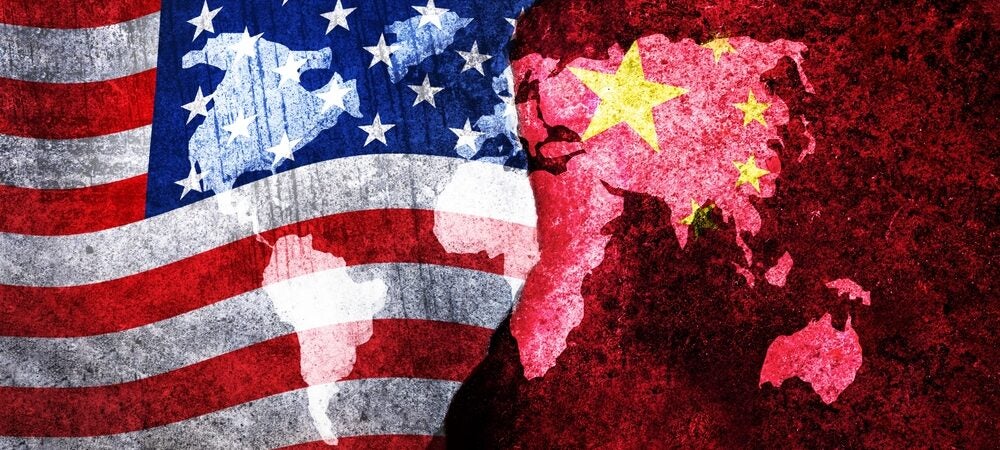Introduction: The global struggle to respond to an emerging two-bloc world
“It’s not a question of one country or the other per se; it’s really a question of the best deal that we can strike.” Nigerian Foreign Minister Geoffrey Onyeama, November 19, 2021
Even prior to the pandemic and invasion of Ukraine, Europe was struggling to find the best approach to the emerging international dynamics of a post-unipolar world. As the underlying fabric of the rules-based global system gets stretched – between the United States and its partners, China and its growing list of friends, and everyone else in the middle – the sense that a two-bloc world is gradually re-emerging is greater than at any time since the Cold War. It was accelerated by Russia’s invasion of Ukraine only a few weeks after China and Russia reaffirmed their “no limits” partnership and committed to solidify their own bloc. European leaders now face some stark realities as the rules-based international order they are used to risks being undermined by this new dynamic.
However, countries all over the world are attempting to respond to shifting global dynamics and a rising China, not just close allies of Beijing or Washington. And Beijing sees what is at stake very clearly: the success or failure of its ambition to regain global power status by 2049 and play a central role in reforming the present international order hangs on how countries outside the traditional “West” respond to its growing strategic footprint and rivalry with the United States.
It is of major importance to European leaders to understand how actors outside the usual grouping of rich, liberal market economies view this changing ecosystem, and how they think about Europe in a complex world of actors who all have agency. To that end, we commissioned eight contributors to describe their countries’ views of China and US-China rivalry. Their analyses cover Bangladesh, Chile, Indonesia, Kazakhstan, Kenya, Nigeria, Saudi Arabia, and Turkey. The eight countries were chosen for their geographic and cultural diversity, varied levels of development, different government types and varied degrees of proximity to China.
Contributors universally reported that their countries “do not want to ‘choose’” between Beijing and Washington – instead, governments hope to remain in the middle and see what opportunities might emerge out of US-China competition over third countries. However, it is possible these countries may nevertheless be pushed to “choose.” There is therefore a pressing need to understand their interests and perspectives better now, rather than after the fact.
More immediately likely, however, is that these eight countries (and others too often overlooked by European leaders) might choose sides in smaller, specific matters under the rules-based international system. Russia’s invasion of Ukraine provided a glimpse as to how such matters can play out. When the UN General Assembly (UNGA) held a vote in early March 2022 on a resolution to condemn the invasion, 141 countries supported it, 35 abstained, and 5 opposed. Of the eight countries selected (prior to the invasion) for this project:
- Abstentions came from Bangladesh and Kazakhstan, countries with close ties to Russia, or to the USSR in the past.
- Two votes in support came from Chile and Turkey, which have mutual defense pacts with the United States; the third, Saudi Arabia, is heavily reliant on the United States as a security provider.
- The remaining three – Indonesia, Kenya, and Nigeria – also voted in support of the resolution. All have much larger trade flows – all of which are surpluses – with the United States than with Russia.
From a European perspective, it is worth considering how these eight countries, and others in their respective neighborhoods, might exercise their agency and leverage their positions in multilateral institutions. Or within the emerging blocs, if push comes to shove. Compared with modern Russia, China’s vastly larger economic ties with much of the world, coupled with its growing role as a security provider to a swathe of countries, would likely produce very different calculations if UNGA members were asked to vote to condemn something China did. Add to this that Beijing has repeatedly demonstrated willingness to use economic coercion when faced with even minor diplomatic slights. This dynamic begs two questions: would the 141 countries that condemned Russia’s invasion of Ukraine do the same if China had been the aggressor? What does Europe need to do to enhance its value in the eyes of such countries to shift the calculus in favor of the rules-based system?
Key trends: Chinas narratives in western liberal democracies are not mainstream in the rest of the world
Attitudes towards China in the eight countries diverged widely from the mainstream narratives in developed liberal democracies; the same was true of attitudes to US-China tensions. There were several common trends among the eight, though key differences emerged too.
Economic ties with China have expanded in nearly all eight countries since 2012. Trade with China has grown significantly for most during the last decade. Overall volumes have risen by several multitudes for most, but the trend has brought sizable trade deficits with China for all except two – Chile and Saudi Arabia. Several countries saw imports skyrocket while their exports remained flat. Yet looking at overall trade with all partners, China now takes a much larger share of both imports and exports. It has become – for most – either the largest trading partner, or among the largest. Closer business ties, growing trade, and Chinese inbound investment were generally viewed positively, with some exceptions:
- Nigerian companies are concerned at how Chinese imports undercut prices and displace small producers.
- Large companies in Chile view China as an opportunity, but smaller companies struggle to compete, especially footwear producers.
To read the full report from Mercator Institute for China Studies, please click here.

